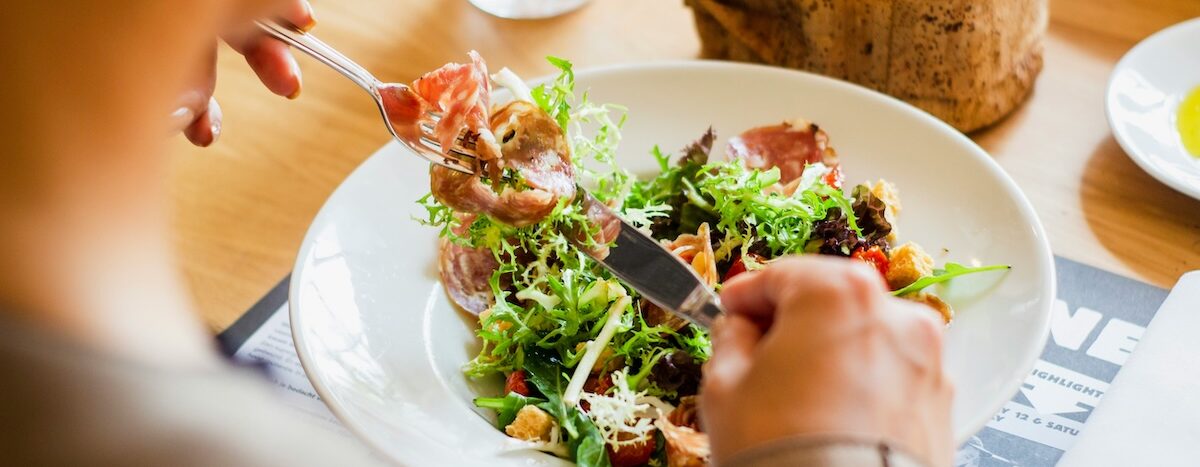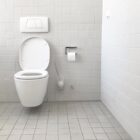
Bloating is one of the most common issues that my clients come to me with. It’s also one of the most complex to address because there are so many potential causes. Bloating can be caused by a gut dysbiosis (a disruption of the microbiome), but it can also be the result of certain behaviors like eating too quickly, or gulping air when working out.
Although it may take some experimentation to get to the bottom of chronic bloating, the good news is that you can usually figure it out — and sometimes the fix is as easy as taking a walk around the block. Occasional bloating is completely normal, but that doesn’t make it any less annoying when it happens. In all my years working as a gut-health dietitian, I haven’t found a way to reduce bloating that works 100% of the time for everyone, so, prevention is the way to go!
Here are my top tips to prevent bloating:
👉🏼 Chew your food to an applesauce consistency before swallowing (that’s about 20 – 30 chews). In practice, this can be tough to actually do, but it’s incredibly helpful in preventing bloating. Why? The better we chew our food, the easier it is for our digestive system to break down and absorb it. As we chew, digestive enzymes are secreted in our saliva and along our entire digestive tract. More enzymes = better digestion. Another culprit of bloating is gulping air down when we eat really quickly, which chewing well helps to avoid.
In all my years working as a gut-health dietitian, I haven’t found a way to reduce bloating that works 100% of the time for everyone, so, prevention is the way to go!
👉🏼 Take a 5-10 minute walk after eating. Gentle movement after eating supports gut motility (how quickly and easily food moves through the digestive system), which also means that gas has an easier time moving through our system rather than getting stuck.
👉🏼 Eat in a relaxed state. Getting into “rest and digest” mode readies our digestive system to receive food by releasing digestive enzymes, stomach acid and hormones that play a critical role in digestion. The more prepared our bodies are for food, the more quickly and easily it will get broken down and absorbed.
👉🏼 Identify trigger foods. Often, people who experience regular bloating have a sense of which foods cause it. This can be helpful for getting to the root of the issue so that those foods don’t have to be avoided forever. If you’re unsure, it may be worth doing low FODMAP or another elimination diet to identify the foods triggering your symptoms.
👉🏼 Avoid sugar alcohols. Sugar alcohols are commonly used in sugar-free products (think candies, protein bars, and mints) as a sugar substitute. Sugar alcohols can cause bloating, pain, and gas for those who are sensitive. If you are prone to bloating, it’s best to enjoy sweets made with real sugar, honey, agave, etc. in moderation (just like everything else).
On that note, nix carbonated drinks, too. If you tend to get bloated, it’s important to stay hydrated and drinking enough water will help flush out excess sodium and prevent your body from holding onto excess water. Regular water is best, since seltzer and sodas can make gas and bloating worse. If you’re craving something other than water, black, green and herbal tea are all great options!
Sensing a common theme here? The more we can do to support our body’s natural digestion process, the less likely we are to run into uncomfortable symptoms like bloating.
If you’re past prevention and looking for relief, try a digestive aid. Taking an herbal supplement or digestive enzymes can help reduce symptoms of bloating. For example, Iberogast is an over-the-counter supplement that contains herbs that may help with bloating. In my experience, I have seen digestive aids work really well for some but not at all for others. Although digestive aids are relatively gentle, always check with a healthcare professional before starting them – especially if you take medication regularly or have any medical conditions.
- Eating Behavior (47)
- Grocery Shopping Tip (9)
- Gut Health (42)
- Healthy Eating (49)
- Low FODMAP (13)
- Nutrition Articles (32)
- Recipes (27)
- Uncategorized (4)



